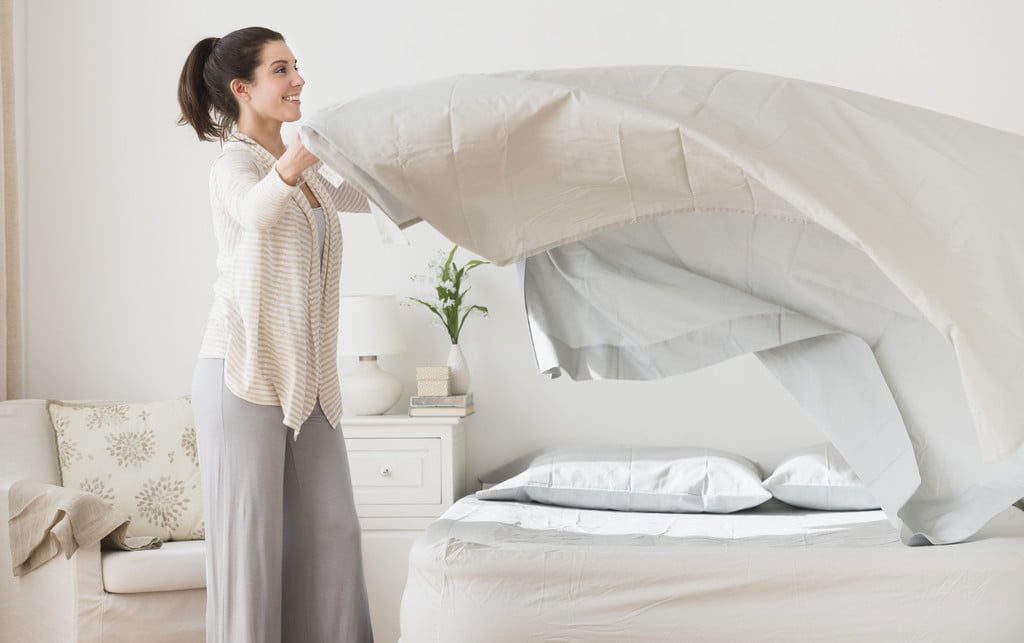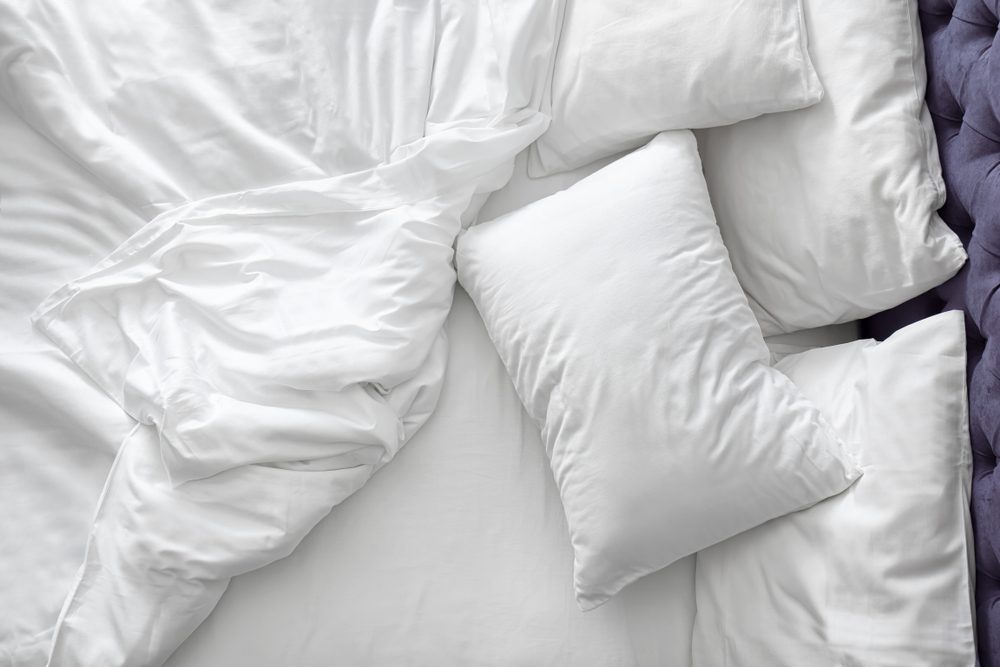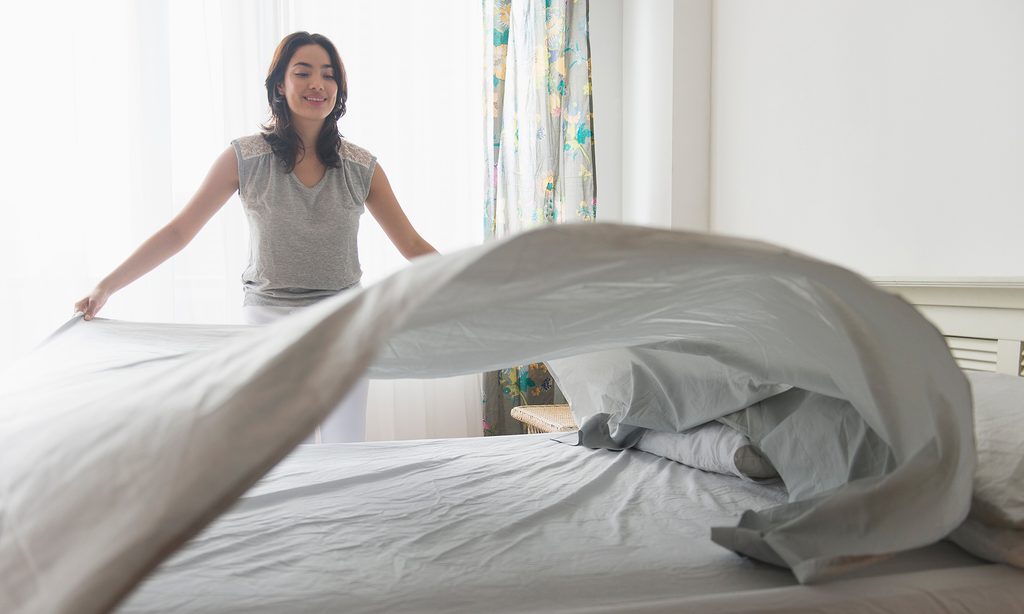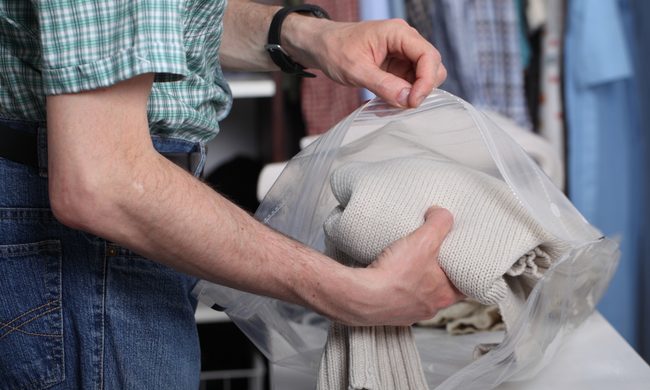
It may surprise you, but we spend a third of our lives on our bedding. That’s about 56 hours a week of dead skin cells, body oil, and sweat, not to mention a colony of microscopic critters piling up on our bedsheets. Gross, right?
While sleeping on dirty sheets doesn’t have a threatening effect on your health, it can, without a doubt, impact your skin and sleeping routine. That’s why it’s very important to know the answer to the question: How often should you wash your sheets? — as well as the proper methods of washing bedding, so that they’re constantly clean and soft. We’ve compiled some tips and things to keep in mind to get the most comfort and rest out of your bedding.
How often does the average person wash sheets?

According to a survey by Sleep Advisor, the average person washes their sheets only once every 24 days. This infrequent washing can be problematic as it allows the buildup of sweat, dead skin cells, and allergens, which can lead to poor hygiene and potential health issues.
Regularly washing your sheets is crucial to maintaining a clean and healthy sleeping environment. Frequent laundering helps to eliminate dust mites, bacteria, and other contaminants that accumulate over time, ensuring a fresh and comfortable bed. Thus, washing sheets more often than every 24 days is essential for a better night’s sleep and overall health.
How often SHOULD you wash your sheets?

To avoid building up contamination, most experts suggest washing the sheets every week on average. This is especially ideal if you or your partner sweats a lot, has a contagious illness, or suffers from pollen and dust allergies. The same is true if your dog sleeps with you. Those who don’t sleep in their bed every single night or are pressed for time, on the other hand, will be able to get away with washing their bedding once every two weeks.
These are just recommendations, however. How often you should wash your sheets is also dependent on your lifestyle. This includes factors such as the way you sleep, what you wear to bed, and if you shower before going to sleep.
What happens if you don’t wash your sheets often enough?

Adding extra loads to your laundry on top of your already busy schedule can be quite a drag, but learning about what happens when you don’t change your sheets often enough will push you to stick to a regular schedule.
Needless to say, the longer you hold off on washing your sheets, the greater the buildup of particles. In addition to your own dirt and body fluids, there’s also a big chance that dust mites are taking up residence on your bedding. They don’t bite, but these very tiny creepy crawlers are considered an allergen and can cause symptoms like coughing, asthma, and hay fever.
Bacteria can also gather and disrupt your skin’s ecosystem, which may result in skin irritation, eczema, and acne. Additionally, germs are likely to spread if you’ve got something contagious like flu or cold.
Why do freshly washed sheets feel good?

Hopping into your bed with freshly cleaned sheets feels immaculate for simple reasons. Their smooth, crisp fabric and soothing scent create a wonderful way of increasing your comfort and helping you fall asleep. In fact, a study conducted by the U.S. National Sleep Foundation in 2012 found that 73% of us enjoy better sleep on fresh sheets. The laundry detergents used also play a role in this. Not only do they provide effective cleaning, but there are others that also promote a night of restful sleep and offer calming scents for relaxation.
Should you wash new sheets?

Identifying whether or not you should wash new sheets is a matter of choice between saving yourself from the hassle of an extra load of laundry or making sure they are sanitized before you put them on your mattress. Sleeping on sheets right out of the package isn’t harmful, but it’s always a good idea to get them cleaned before using them.
Although they look clean and ready to be slept on, the fact remains that they were produced in a factory. There have been reported incidents of itchy and irritating sensations when sleeping on new, unwashed sheets, which is mostly caused by a starch called “sizing” that’s responsible for keeping them crisp and smooth in the packaging. That’s why it’s recommended that you give them a quick wash to make them fresh and comfortable to sleep on.
What’s the best way to wash your sheets?

There are many types of bedsheets on the market, each one with different wash and care requirements. Some of the most common ones include cotton, silk, linen, flannel, polyester, and bamboo bed sheets. Make sure to check the care label of your bedding for any precautions so as not to destroy it.
One of the best ways to clean your bedding is by using the hottest water its material can withstand. Hot water does a solid job of killing pathogens and other particles. For detergent, go for a gentle option to extend the life of your sheets.
If washing with hot water and drying with high heat is out of the question, you can also choose to hang your bedding out in the sun since sunlight has natural antimicrobial properties that can kill particles like mites. Ironing is also a great trick that can help sanitize sheets.
Maintaining a regular sheet-washing schedule is vital for ensuring a clean and comfortable sleeping environment. By following expert recommendations and considering your lifestyle, you can determine the best washing frequency for your needs. Freshly laundered sheets not only promote better health but also enhance your overall sleep experience.


